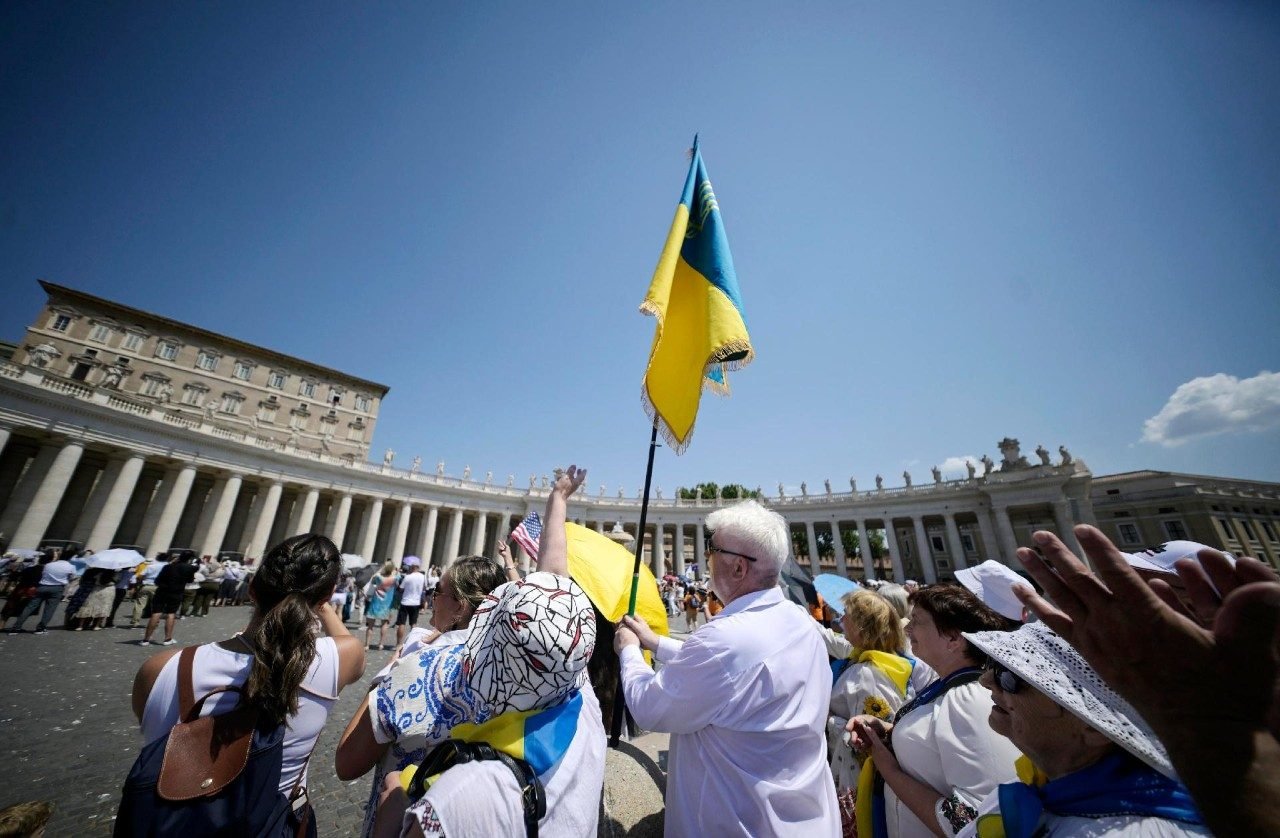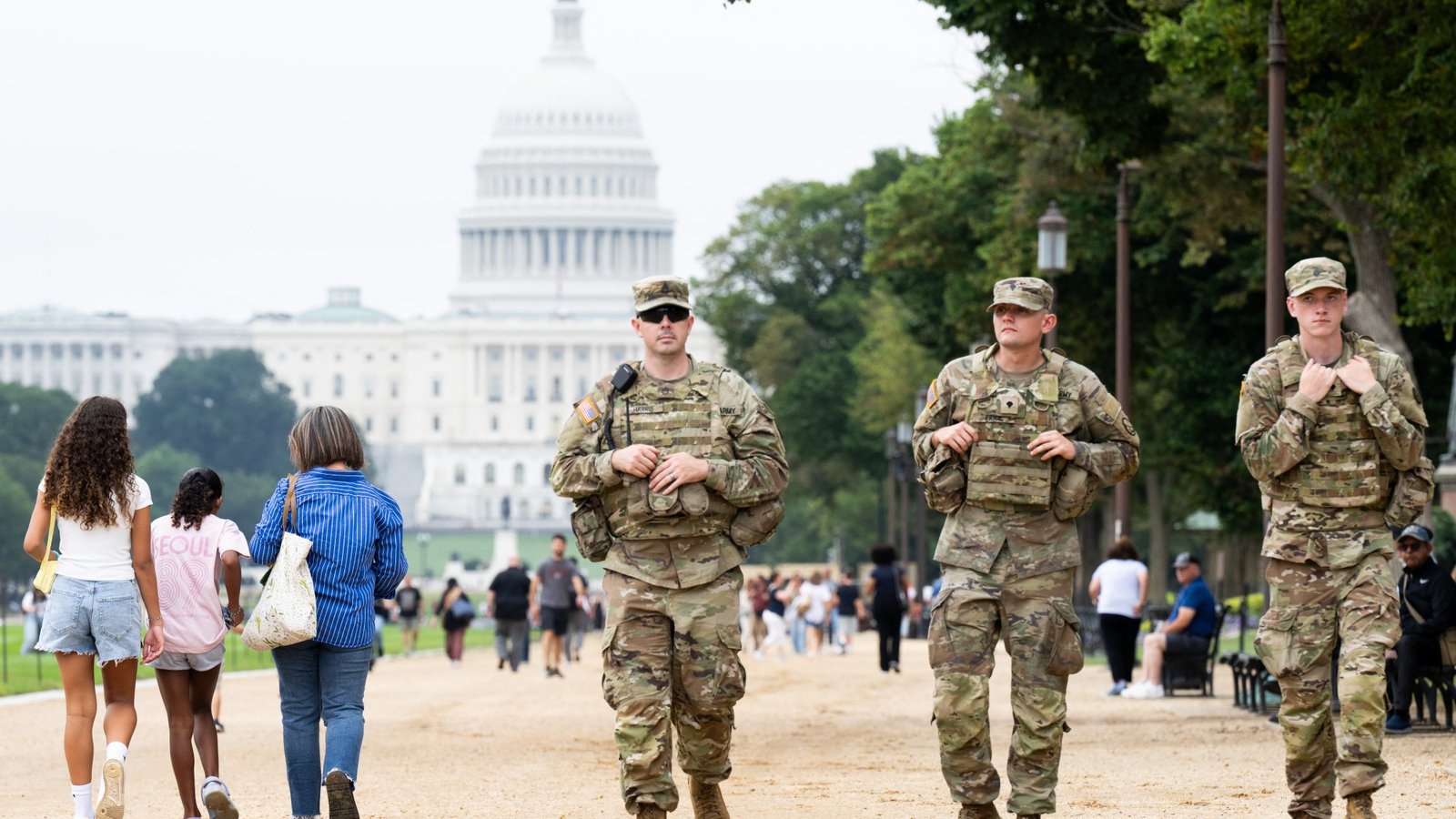Bishop Vitalij Skomarovskyj, president of the Latin Rite episcopate in Ukraine, expresses his gratitude to Pope Leo XIV for proclaiming 22 August as a day of prayer and peace for regions affected by conflict.
By Svitlana Dukhovych
Hope that does not bend, even under the most relentless and brutal bombardment — this is what sustains the Ukrainian people, who live with hearts torn between pain from the unceasing attacks by Russian forces and hope that ongoing international negotiations might finally open the door to peace after more than three and a half years of war, death, and atrocities.
It is in this context that Pope Leo XIV has chosen to dedicate tomorrow, 22 August — the liturgical feast of the Queenship of the Blessed Virgin Mary — as a day of prayer and fasting for peace and justice in nations at war, especially in Ukraine and the Holy Land.
Bishop Vitalij Skomarovskyj, who in an interview with Vatican News, expressed his appreciation on behalf of the Latin Rite Church in Ukraine for the Pope’s decision.
Q: What does the Holy Father’s appeal mean for the Church in Ukraine?
It is profoundly important that the Holy Father remembers us, because his initiative is an appeal to the entire Church around the world — and I would say not only to the Church, but to all people of goodwill.
This initiative holds extraordinary power, and we are very grateful that the Pope is thinking of us. It echoes the words of the Gospel, where prayer and fasting are shown to have great power — they can shape history.
We’ve seen many examples of this, and we are especially thankful that this intention of prayer includes an end to the war in Ukraine. The Holy Father has said himself that peace demands real effort and sustained prayer. We are glad to join others around the world in this effort.
In fact, we recently had a similar day of prayer and fasting. On 14 August, the International Union of Superiors General (UISG) called for a day of prayer and fasting for world peace, with particular focus on Ukraine. Both the Ukrainian Greek Catholic Church and the Roman Catholic Church in Ukraine responded, and our faithful took part wholeheartedly in prayer and fasting.
Q: Your Excellency, what do you think about the diplomatic efforts being made by various world leaders to bring lasting peace to Ukraine? And how do the faithful and the clergy maintain hope in these circumstances?
As believers, we rediscover each day that our hope is rooted in God — and that kind of hope never disappoints. Of course, God often works through people. Those who work sincerely for peace are doing God’s will, because God desires peace among all people.
But throughout this war, we’ve learned that placing our hope in people alone can lead to great disappointment. In contrast, hope in God never fails. How God will act is a matter of His holy will.
Naturally, we welcome and support every sincere effort toward peace. But since ordinary people often don’t have full insight into the political processes underway, our role is to pray, and to support with our prayers those in positions of influence, those on whom peace ultimately depends.
Q: On Sunday, 24 August, Ukraine will mark the 34th anniversary of the restoration of its independence – all the while the struggle to preserve that independence continues. Many lives have been lost in its defense. How has the meaning of freedom and independence changed in this context?
When Ukraine gained independence in 1991, I remember the general mood — it was one of great joy, because independence had been achieved with little bloodshed, and not by force.
Of course, historically, the struggle for freedom had been long. But at that moment, it felt like a gift. Now, over time, we have come to understand just how precious independence really is. We see today the high price we must pay to keep it.
People are coming to value more deeply their fellow citizens, their loved ones, their defenders, and their homeland. There is a growing awareness of the true worth of independence, likely much greater than in the past.
The ongoing war has also taught us how vital it is to treasure peace. We have always prayed for peace, but perhaps we didn’t fully realize what an immense gift it is — to live in peace, to live without war.
Q: Tomorrow, you will preside over the funeral of a 45-year-old Ukrainian soldier, leaving behind a wife and three children. You’ve conducted many such funerals. How do you find the strength and the words to offer spiritual support to those who have lost loved ones?
It’s never easy. Military funerals are always difficult moments of prayer. These are people who were full of life — with families, parents, children, spouses…
But I believe that those who suffer the loss of a loved one, who find themselves in such deep sorrow, are in desperate need of words of faith and comfort. Through those words, God Himself acts in their hearts.
Some might wonder: can words really help in such pain? But those who have experienced such loss know that they can — because it is God’s word, not just human words.
God’s word always consoles. It’s the only thing that truly strengthens and gives hope — hope that this separation is not final, that one day we will be reunited with our loved ones.
It also brings the assurance that their sacrifice was not in vain — it was a sign of love for their country and their people.
And most importantly, we are reminded that life does not end here on earth. We have eternal life. Especially when we bury believers who were already open to the eternal dimension even during their life on earth, we can hope that they now stand before the face of God and have received their eternal reward.




